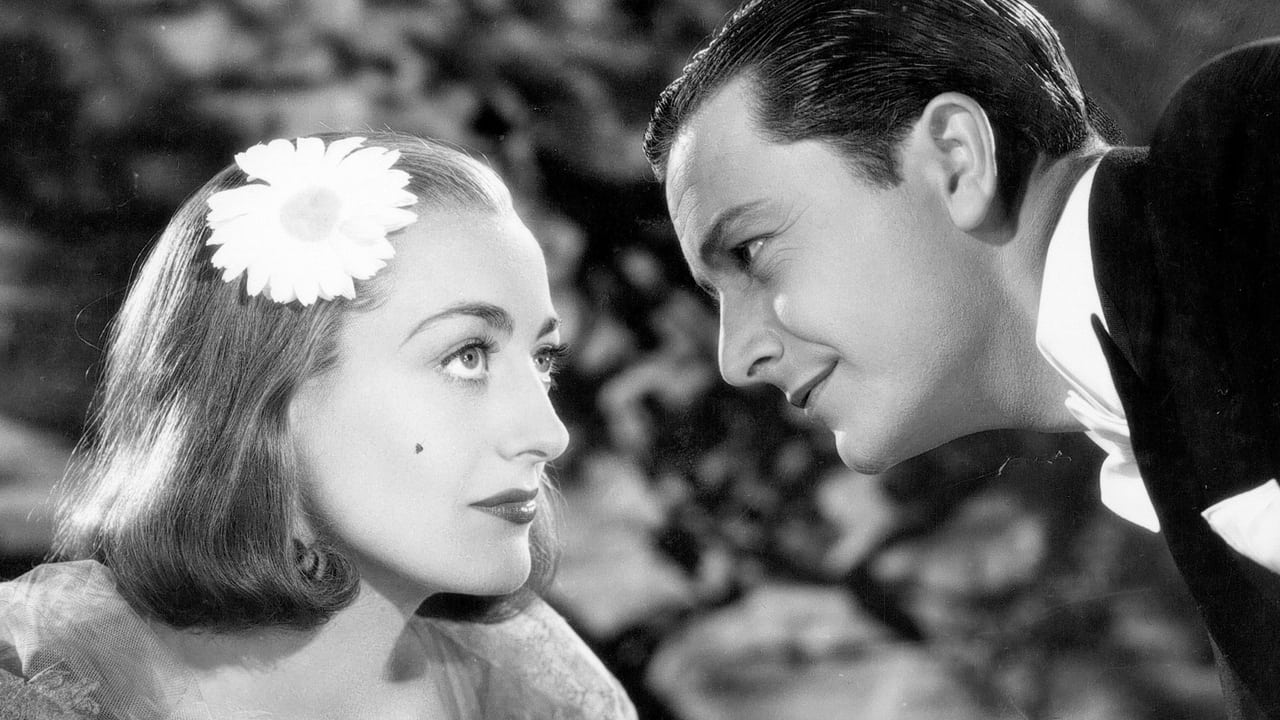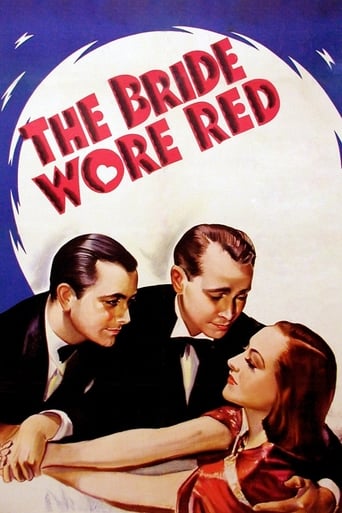

The Bride Wore Red is a ridiculous but fun film. A drunken count, slumming it for the night, runs into a cynical and hungry young woman, Anni Pavlovitch (Joan Crawford). He decides to send her on a luxury vacation to prove his drunken point that the poor and the rich aren't so different after all and buys her new clothes and arranges for her to stay in a luxury resort. Anni, who obviously thinks the whole thing is crazy, decides to go threw with it anyway. Arriving in the alps she meets Giulio (Crawford's real life husband, Franchot Tone) a very pert mail employee who immediately takes a shine to her. The two have sparks aplenty, but when she arrives at the hotel Anni quickly realizes that she would rather always have food on her table than the love of a good man, and quickly sets about seducing Rudi, a flighty engaged man who is very taken with her. As with most romcoms the real test is if the chemistry works and here it does perfectly. Crawford and Tone have excellent chemistry here and he is very sweet and naive, persistently wearing down the jaded and bitter singer. It's a lovely sweet film.
... View MoreJaded club singer Anni Pavlovitch (Joan Crawford) runs into a count who devises a plan to give Anni an opportunity to swing with the swells for two weeks in a rustic Italian vacation spot in the mountains. Anni is totally seduced by the lifestyle and with time running out moves in on Maddelena Monti' s well heeled beau Rudi Pal ( Robert Young) to try an insinuate herself into the jet set lifestyle on a more permanent basis. The local postman Giullio (Franchot Tone) has also taken a shine to Anni offering her an unencumbered down to earth existence in contrast but cynical Anni is tired of the hardscrabble existence preferring pampered materialism instead.Under the rare oddity of a female studio film director (Dorothy Arzner) Crawford is allowed to stretch with more than satisfying results as she struggles with the conflict of hooking up for love or money. Arzner not only gets some impressive long takes out of Crawford but also softens her standard studio brusqueness with a touching sensitivity as her dream of easy street evaporates before her eyes. Arzner also gets fine performances out of upper crusts played by Young and a beautifully smug performance from Billie Burke without being condescending to such easy targets. The real surprise though is the sophisticated Franchot Tone as Giullio the country postman. Playing it neither broad or passionate Tone subversively bides his time with a dignity and patience that gives The Bride Wore Red a nice subtle edge and a more touching denouement.
... View MoreMy take: beautiful Adrian red dress, even in black and white. Maybe the dress was the star of the show.IMO, the director may have been in love with Joan (putting two and two together, from another website); maybe Luise Rainer didn't want the part because the director made a pass at her -- perhaps Joan had to do some special things for Arzner in order to get the part. You never know. Stranger things have happened. This was right before Joan's box office poison days began.Robert Young youthful and handsome. Tone a hoot in the countryside getup. Burke divine, and with an acid tongue not often seen. Maddalena long suffering, and, I feel, too good for Rudi Pal (Young). What an oaf that he wanted to have a side dalliance with Anni, but intended to marry Maddalena. I haven't seen Robert Young act a cad before.Too many American "accents" (not European); a downfall, in my book.Loved seeing the different cousins come out of the woodwork. Maria the maid outrageous when smoking the cigarette. She predicted that the trashy singer Anni would come to a bad end, but Tone saved the day.It shows that money, er, the chasing of it, may ruin someone's life just as much as the lack of it. Cool how Tone upped the ante to get Anni kicked out of the hotel, just in time for him to rescue her and show her what's most important in life. 9/10. Anni got to become "Mrs. Peasant", er "Frau Peasant" in Tyrolean.
... View MoreIf this were the typical Cinderella tale, Anni (Joan Crawford), a beautiful but hardened prostitute from Trieste, would have been whisked away to the wealthy vacation resort with clothes and money to spare, and some rich and dashing prince in shining armor would have fallen in love and married her (social class issues notwithstanding). MGM tries their very best to make the film appear to be a Cinderella story of that sort, but I am not unhappy they failed.The story does not turn out that way at all. We have Anni, given such a stellar characterization by Crawford (so perfect as hardened women who seek, but have been constantly been denied, love, in a quintessential role for her), but she is not simply a poor girl from the wrong side of the tracks. She is a prostitute in a dingy bar. We can see from the very first closeup that she is completely hopeless and disillusioned. Crawford's expression as she sings "Who Wants Love?" (an appropriately and brilliantly cynical love ballad which sets the tone for the film) is so brilliant, evocative, and controlled; the work of a great actress, indeed.A very wealthy count discovers her and sets her up for a stay in a resort for other wealthy people, where she can pose as an heiress and possibly attract a man. The catch here is the count is not motivated by altruism; he simply wants to satisfy a bet with a friend that social class has nothing to do with breeding, but just luck. Although he is probably right, there is something unkind about the way he treats the girl. Although at first it seems a kind thing to do (and if this was the Cinderella story it would be), this is not a fantasy but the real world, and in the real world dreams can be broken..The theme of the film is that of dreams being broken. Anni dreams of finding love, wealth, happiness, but eventually she learns no amount of posing or pretending or scheming can get her those things. The rich man she tries to snare turns out to be a cad, only interested in her as a mistress and not as a wife. Another dream is broken.. In the end, although in keeping with the Cinderella aspect of the story it appears she has fallen in love with the postal delivery man, it's obvious she has settled. She has thrown the childhood hopes to the wind, and is ready to accept love in practical terms. And when she settles, we know the biggest dream of all has broken, and Crawford, great actress that she was, shows us her heartbreak by registering extremely subtle emotions in her face, through her walk, and mannerisms.A remarkable film. An undiscovered masterpiece; perhaps Dorothy Arzner's best work.
... View More